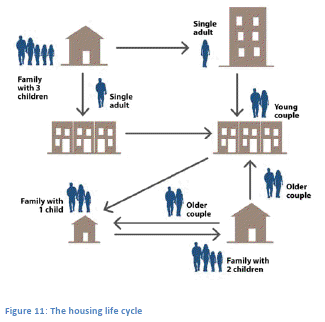One idea in our society that I find prevalent and destructive is the idea that being in a romantic relationship is a sign of mental health. I resent the idea that everyone should be involved in a romantic relationship, but especially the idea that people who are in these relationships are somehow healthier than those of us who aren’t. I’ve found, based on completely anecdotal evidence, that my friends who were raised by single mothers are more likely to share the point of view that ‘until you’re comfortable living alone, you’re not ready for a relationship.’ But even people with this philosophy ultimately tend to think that once you get yourself correct, you’ll be ‘healthy’ and ‘ready for a relationship,’ as if there’s some sort of equivalence. The idea is that once you establish a romantic relationship you’ll be happy, have kids and in doing so become a healthy, contributing member in society.
The idea is so prevalent that our society lacks the infrastructure to support single people as well as single mothers. Architecturally the places created for single people are not thought of as permanent; rooms in apartments, studios, 1-bedroom apartments, in most places, (even cities), these living situations are thought of as temporary while stand-alone houses are considered permanent. We tend to think, ‘I’ll live in this apartment until I get married and we start a life together and buy a house’. The lack of urban density and smart-growth is in part fueled by this American lifestyle that says you grow up in a house, you live in an apartment in your twenties, you get married and start a family in your 30s, buying a house, and you hold onto it until you die1. This biographical timeline is so common and so ingrained that most don’t even notice it enough to question it.
The reason I find the idea destructive is not only that in discourages smart-growth, but that it discourages the development other types of relationships. Relationships with close friends and family are back-burnered in favor of romantic ones. It privileges sexual relationships over asexual ones, and often encourages a type of co-dependency that can be much more unhealthy than independence. In fact, I always thought, growing up, that people in relationships were weaker than people who weren’t. Now I can see that there can be health in romantic relationships and that independence is not always strong (and never truly independent). It’s not black and white, and neither is life, but when there is one vast and prevalent idea I think it’s always helpful to question it.
From Rapid Fire White Paper, Calthorpe Associates.
